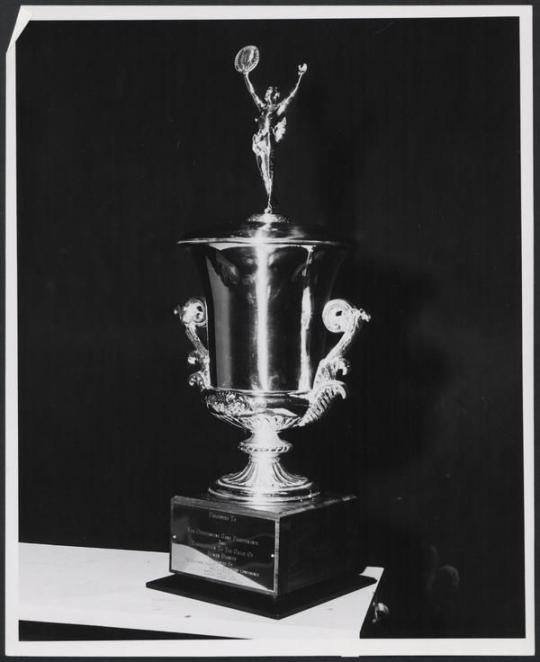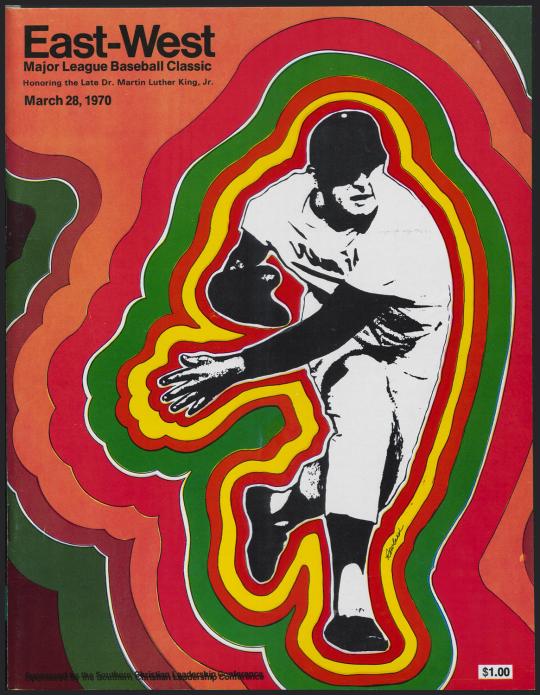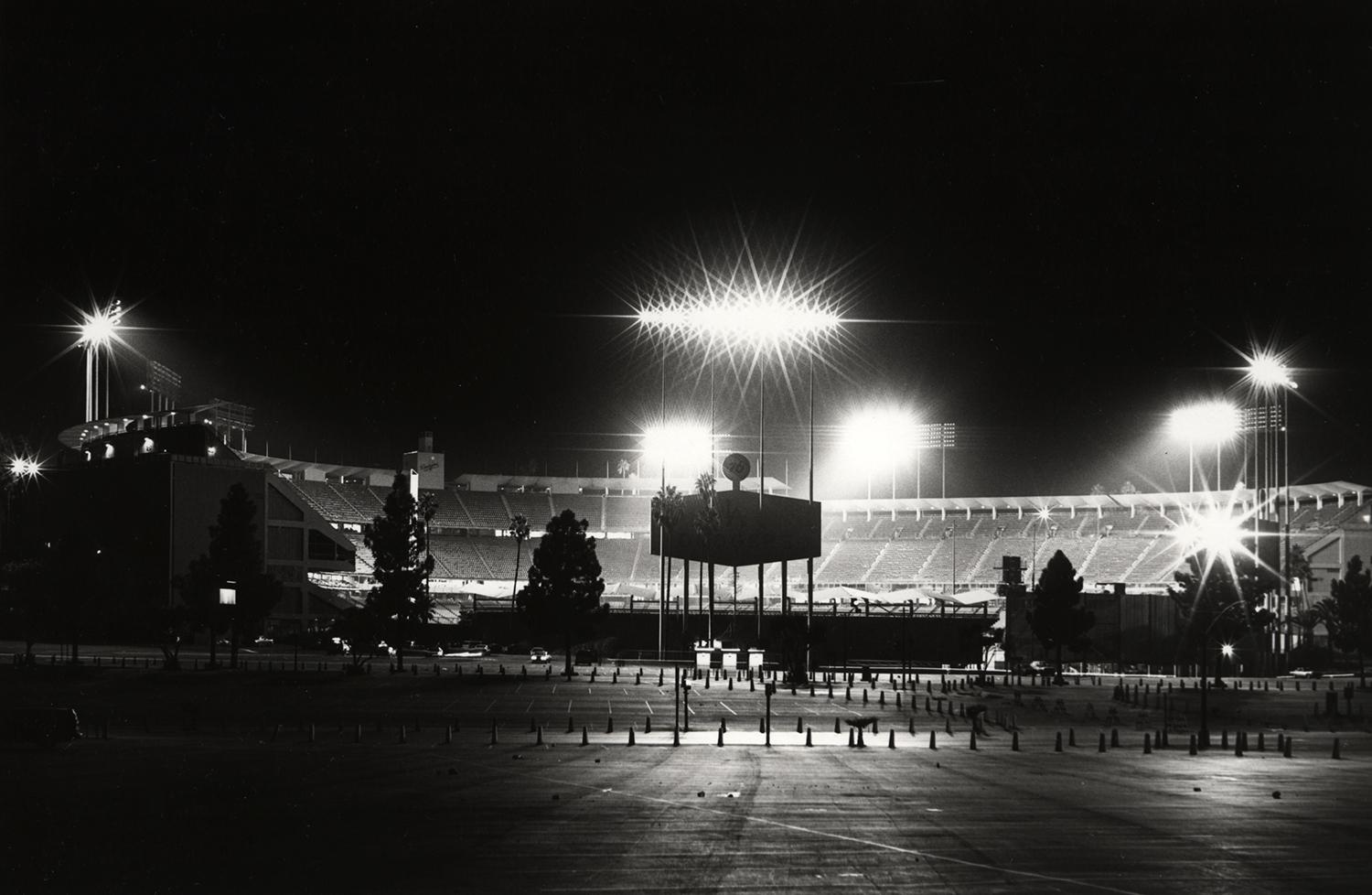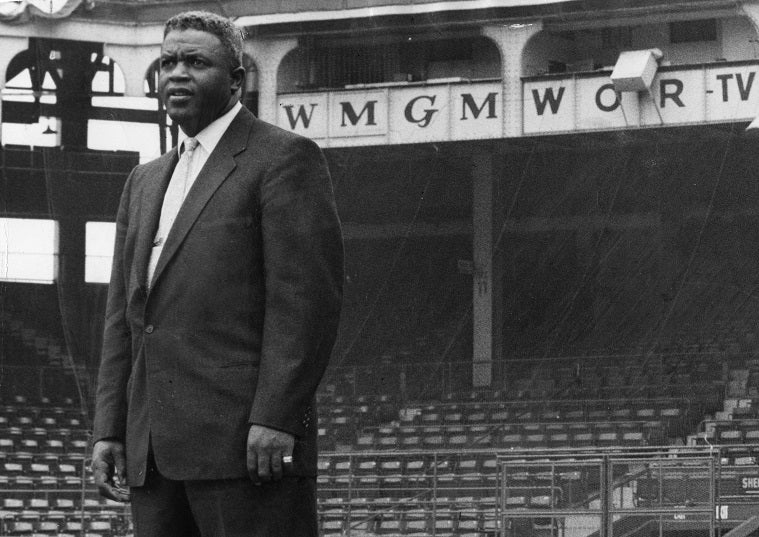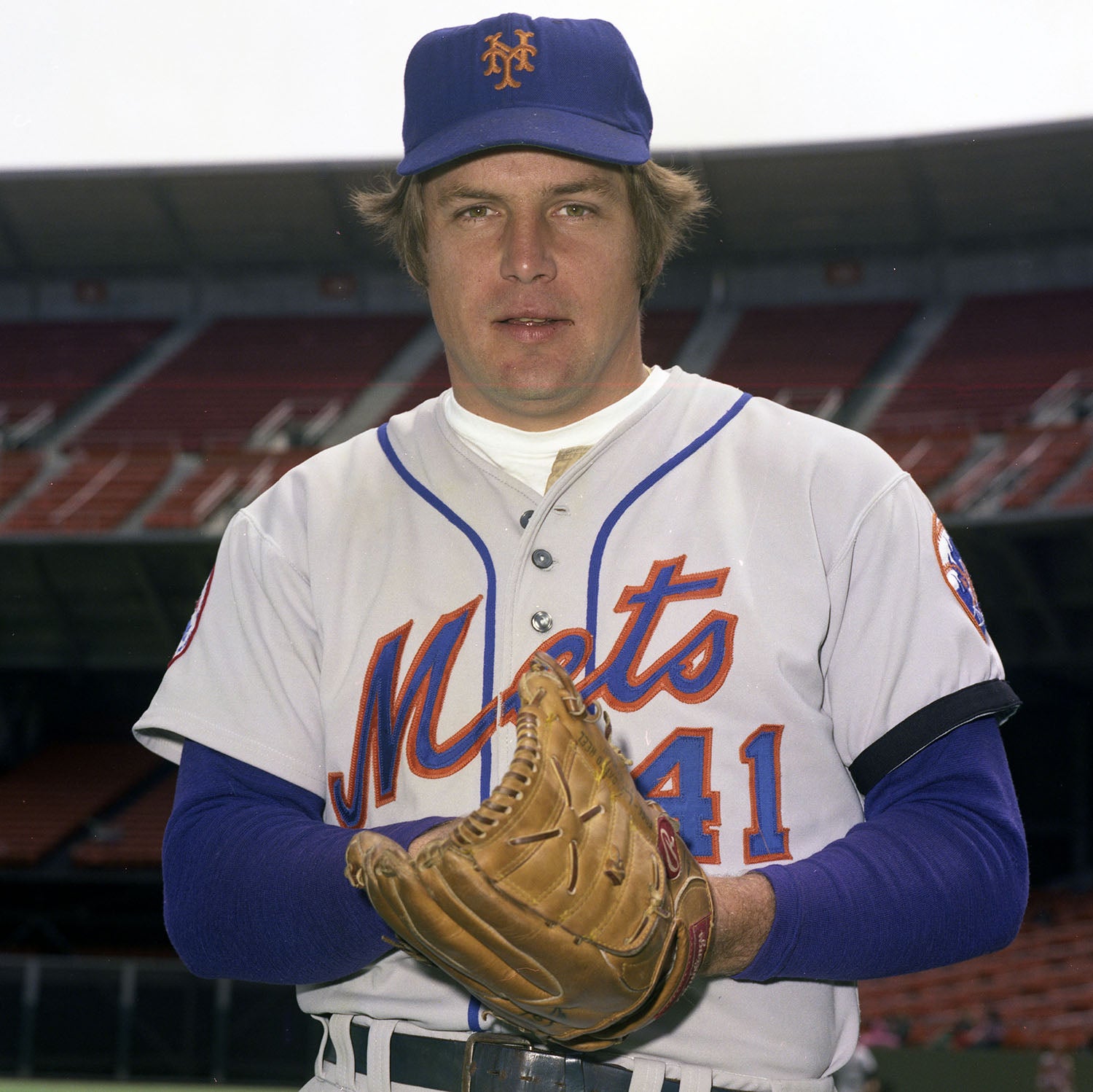- Home
- Our Stories
- 1970 game honored legacy of Martin Luther King Jr.
1970 game honored legacy of Martin Luther King Jr.
Months after the 1968 assassination of Dr. Martin Luther King Jr., a star-studded baseball game was being planned to both celebrate the civil rights leader’s impactful life as well as raise funds for causes that he honored.
Two years later, after overcoming numerous struggles along the way, aspirations became reality when the East-West Major League Baseball Classic, with more than a dozen future members of the National Baseball Hall of Fame in action, took place on March 28, 1970.
Included in the Hall of Fame's collection is information related to the East-West Major League Baseball Classic, comprised of a collection of correspondence, telegrams, meeting minutes, press releases, budget plans, game brochures, news clippings, player invitations, rosters, tickets, a souvenir program, and a black-and-white photograph of the trophy awarded to the Most Valuable Player.
Among the correspondence is a letter dated Nov. 26, 1968 from the Southern Christian Leadership Conference, a civil rights organization Dr. King founded and was serving as president of before he was the victim of an assassin’s bullet on April 4, 1968.
From the SCLC’s sports project director, Joseph Peters, to the Commissioner of Baseball, William “Spike” Eckert, and members of the executive council, it read, in part: “Shortly after the assassination of Dr. King, many professional players came to SCLC with the question ‘What can we do as a memorial to this great man?’
After a brief deliberation, SCLC decided that the players could best express their sentiments by playing a game in memory of Dr. King, and the funds raised would be used by SCLC to continue the work of our fallen leader.”
By early December 1968, reports were that big league baseball would honor the memory of Dr. King by helping to stage an exhibition game in Los Angeles on March 29, 1969.
Included among the details were that all 24 major league teams would send one or two players, the clubs would pay the travel expenses for their players, and the SCLC would use the profits to continue the work of Dr. King.
It was announced in February 1969 that the game would be postponed until 1970 at the request of its sponsor, the SCLC.
“It is just a question of time,” Peters said. “You can’t put together the proper elements in only 10 weeks, especially since we want television revenue to be a large part of this fundraising memorial. The networks simply could not clear time for us that quickly. A date for next year will be announced soon.”
Eventually, it was announced that an East-West all-star exhibition game was scheduled for March 28, 1970, at Dodger Stadium, the proceeds going toward the programs of the SCLC and the Dr. Martin Luther King Memorial Center being established in Atlanta.
This MVP Award was awarded to Ron Fairly of the Montreal Expos at the conclusion of the East-West Major League Baseball Classic. This, and more East-West Classic artifacts, are now available in PASTIME. (National Baseball Hall of Fame)
Hall of Fame Membership
There is no simpler, and more essential, way to demonstrate your support than to sign on as a Museum Member.
The game, which pitted players from the Eastern Divisions of both leagues against players from the two Western Divisions, featured two players from each of the 24 major league clubs. The starting lineups were selected by members of the Los Angeles-Anaheim chapter of the Baseball Writers’ Association of America and the Southern California Sportscasters Association.
The East-West Major League Baseball Classic, in honor of Dr. King, took place at 2 p.m. before 31,694 fans at Dodger Stadium, including Hall of Famer Jackie Robinson, on a sunny and warm Saturday afternoon, March 28, 1970.
Inside in the game program, Baseball Commissioner Bowie Kuhn, in an open letter to SCLC President Rev. Ralph Abernathy, wrote, in part, “It seems only right that Baseball should pause today to pay tribute to one of the great disciples of integration and brotherhood, a recipient of the Nobel Peace Prize, Dr. Martin Luther King, Jr.
The East-West Major League Baseball Classic featured 15 future Hall of Famers. This program and its contents are currently available for viewing in PASTIME. (National Baseball Hall of Fame)
“As Commissioner of Baseball, and as an American, I am proud to give my blessing to this classic which demonstrates that Baseball is democracy at work.”
Before the game, a taped recording of part of Dr. King’s famous “I Have a Dream” speech was played, pitcher Jim “Mudcat” Grant of the Athletics sang a soulful version of the National Anthem from center field, and Coretta Scott King, widow of Dr. King, threw out the first ball to Reds Hall of Fame catcher Johnny Bench.
The crowd was addressed by Rev. H.H. Brookins, president of the SCLC West; Rev. Abernathy, Dr. King’s successor as SCLC president; and Baseball Commissioner Kuhn.
A pair of Hall of Famers served as the day’s managers, with Joe DiMaggio, the great Yankees center fielder, skippering the East squad, assisted by coaches Billy Martin, Satchel Paige, Stan Musial and John McNamara. Roy Campanella, the Brooklyn Dodgers catcher paralyzed in a 1958 automobile accident, managed the West stars, with Sandy Koufax, Don Drysdale, Don Newcombe and Elston Howard serving as his coaches.
Tom Seaver of the Mets, the reigning National League Cy Young Award winner, picked up the win, starting for the East and tossing three scoreless innings in a 5-1 victory. Working behind home plate was Emmett Ashford, big league baseball’s first African-American umpire.
Lew Krausse of the Brewers, who came on in the third inning in relief of the starter, Don Wilson of the Astros, took the loss for the West. Ron Fairly of the Expos, the first batter to face Krausse, hit the first pitch he saw into the right-field grandstand to make it 1-0 for the East. The Cubs’ Ron Santo homered off Krausse in the fourth inning, the ball clearing the 330-foot mark in left field.
“This is the first game they’ve had like this and I’m really honored to have played in it,” Santo said.
The West’s only run came in the eighth inning off the Phillies’ Grant Jackson when Willie Davis of the Dodgers singled and later scored on a double to deep center by the White Sox’s Ken Berry.
The East added three runs in the eighth inning off Grant on a single to center by Detroit’s Al Kaline, a double to left by St. Louis’ Lou Brock, Roberto Clemente’s double to center and a single to center from the Washington Senators’ Ken McMullen.
“One heckuva day,” Campanella said. “Even though we didn’t score many runs, it was a beautiful day.”
A total of 15 future members of the National Baseball Hall of Fame appeared in the game: Al Kaline, Frank Robinson, Lou Brock, Willie Stargell, Roberto Clemente, Ron Santo, Ernie Banks, Tom Seaver and Bob Gibson from the East; Hank Aaron, Reggie Jackson, Johnny Bench, Orlando Cepeda, Joe Morgan and Willie Mays from the West.
Mays travelled the farthest, as his Giants were in Japan for a series of exhibition games and he made a 12,000-mile roundtrip to participate.
“It doesn’t matter what the score was,” said Commissioner Kuhn after the game. “The real winner was Dr. Martin Luther King.”
Fairly was named MVP of the game, a selection made by the players, and was presented the trophy by Coretta Scott King.
“It’s quite an honor for me to just have been invited to participate in this game,” Fairly said. “I was a little surprised the guys picked me, but it is quite an honor for me, something I’ll remember for a long time.”
According to the SCLC, the game netted more than $30,000. Ticket prices: Box seats went for $10, reserved seats for $5 and $3.50 and general admission for $2.
“I’m sure my husband would have been very proud of what has been accomplished today,” said Coretta Scott King. “I want to thank Commissioner Kuhn and his office for their help in this event and give special praise to the players involved and their clubs, who paid the expenses and allowed their players to take part.”
Bill Francis is the senior research and writing specialist at the National Baseball Hall of Fame and Museum
Related Stories
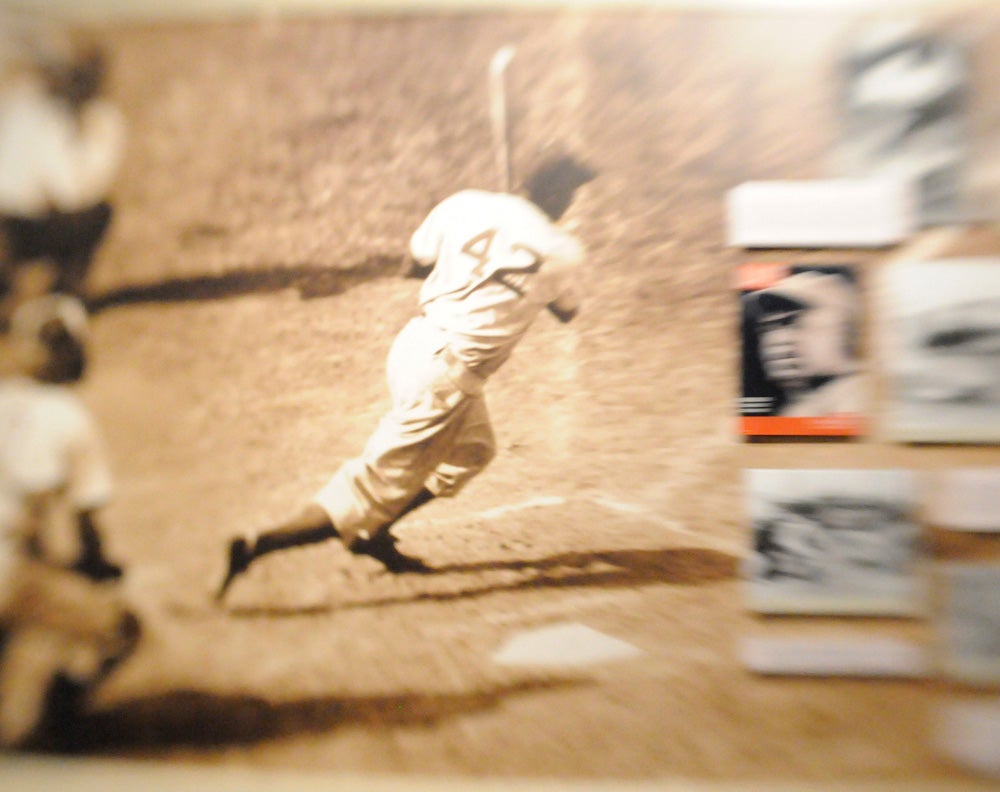
Civil Rights: Before You Could Say "Jackie Robinson"
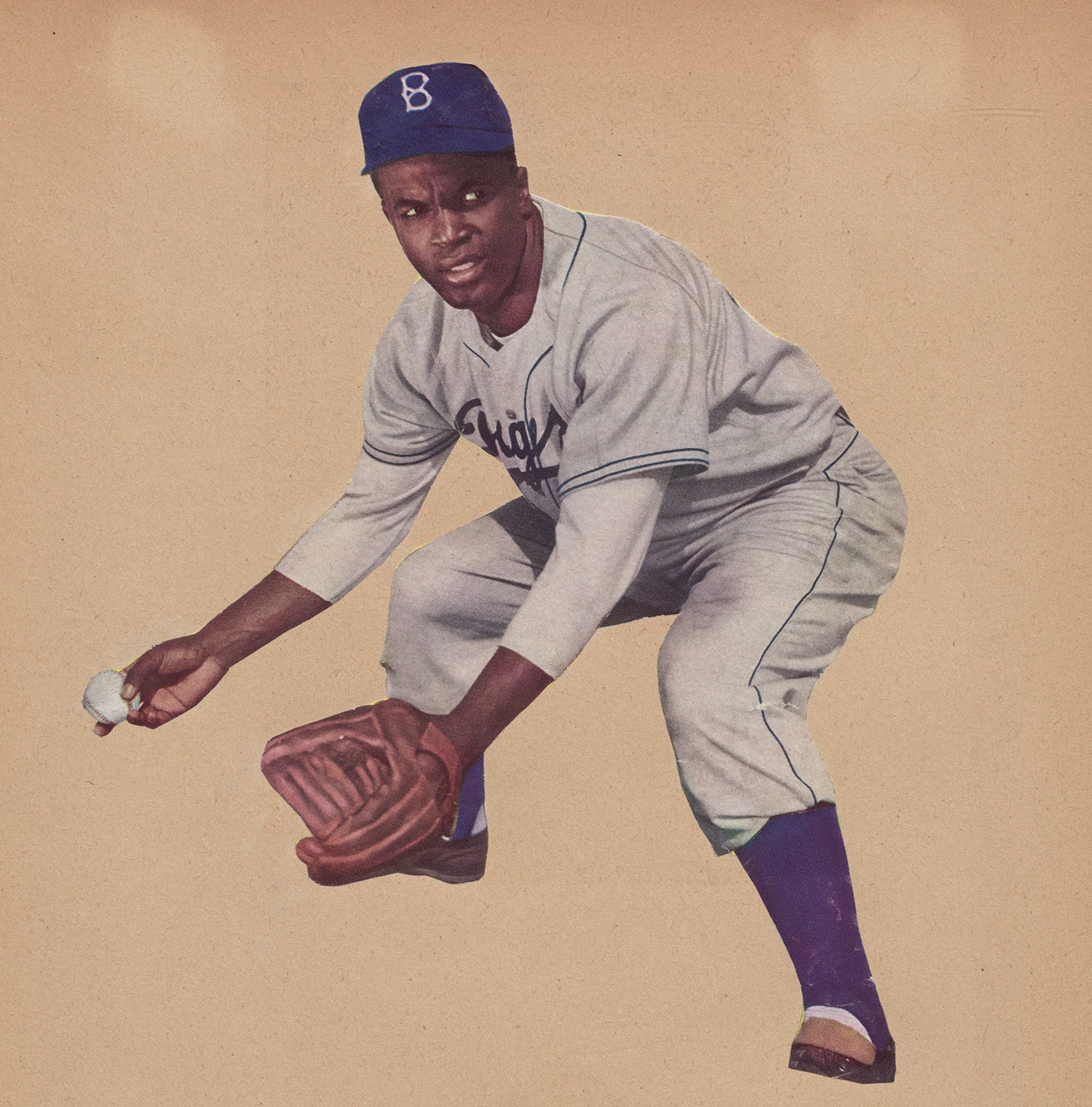
Negro Leagues History Digitized in Museum’s Latest Additions to PASTIME

Civil Rights: Before You Could Say "Jackie Robinson"




